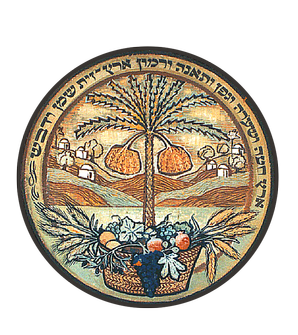Related Research Articles

Dimocarpus longan, commonly known as the longan and dragon's eye, is a tropical tree species that produces edible fruit. It is one of the better-known tropical members of the soapberry family Sapindaceae, to which the lychee and rambutan also belong. The fruit of the longan is similar to that of the lychee, but is less aromatic in taste.

Citrus production encompasses the production of citrus fruit, which are the highest-value fruit crop in terms of international trade. There are two main markets for citrus fruit:
Agriculture and Agri-Food Canada is the department of the Government of Canada responsible for the federal regulation of agriculture, including policies governing the production, processing, and marketing of all farm, food, and agri-based products. Agriculture in Canada is a shared jurisdiction and the department works with the provinces and territories in the development and delivery of policies and programs.

Citrus greening disease is a disease of citrus caused by a vector-transmitted pathogen. The causative agents are motile bacteria, Liberibacter spp. The disease is transmitted by the Asian citrus psyllid, Diaphorina citri, and the African citrus psyllid, Trioza erytreae. It has no known cure. It is graft-transmissible.
The New York State Agricultural Experiment Station (NYSAES) at Geneva, Ontario County, New York State, is an agricultural experiment station operated by the New York State College of Agriculture and Life Sciences at Cornell University. In August 2018, the station was rebranded as Cornell AgriTech, but its official name remains unchanged.

The Agri-Food and Veterinary Authority of Singapore (AVA) was a statutory board under the Ministry of National Development that regulated food safety, safeguarded animal and plant health, and facilitated the agri-food and fisheries trade sectors. AVA was disbanded on 1 April 2019, with duties being transferred to other statutory boards, Singapore Food Agency, National Environment Agency, Health Sciences Authority, and National Parks Board.

The Agricultural Research Organization, Volcani Center, previously known as the Agricultural Research Station of the Jewish Agency for Israel, is an Israeli agricultural research center. It serves as the research arm of the Ministry of Agriculture and Rural Development of the State of Israel and provides research opportunities for local and international scientists at post-graduate levels, as well as educational opportunities for Israeli and international youths, farmers and scientists. The organization supports Israeli agriculture research, focusing on plant sciences, animal sciences, plant protection, soil and environmental sciences, food sciences, and agricultural engineering. The organization was founded in 1921 in Ben Shemen, Israel, by Yitzhak Elazari Volcani, for whom it is named.

The Kentville Research and Development Centre (formerly Atlantic Food and Horticulture Research Centre) is a branch of Agriculture and Agri-Food Canada's national network of 20 research centres stationed across Canada. The site is situated on 464 acres in Kentville, located in Nova Scotia's Annapolis Valley. The Centre's programs address agricultural challenges throughout the Canadian horticultural and food network, but primarily focus on the regional requirements of Atlantic Canada. On September 2, 2003, the centre's staff was recognized by Environment Canada for providing a volunteer climate observation station for a continuous 70 years. On January 26, 2011, and in honour of their centennial celebration, the centre was bestowed with an honorary membership to the Nova Scotia Fruit Growers Association in recognition of the centre's development and support of a sustainable tree fruit industry in Atlantic Canada.

The Central Bicol State University of Agriculture, or simply referred to by its acronym CBSUA, is a state university in the province of Camarines Sur, Philippines, and is the regional center for higher learning in agriculture in the Bicol Region.

The Indian Institute of Horticultural Research (IIHR) is an autonomous organization acting as a nodal agency for basic, strategic, anticipatory and applied research on various aspects of horticulture such as fruits, vegetable, ornamental, medicinal and aromatic plants and mushrooms in India. The institute has its headquarters in Bengaluru, Karnataka, India and is a subsidiary of Indian Council of Agricultural Research (ICAR), New Delhi, under the Ministry of Agriculture, India. It recently has been ranked 1st for the combined years 2019-20 and 2020–21 by the ICAR.
The Cereal Research Centre was a research institute established in 1925 based at the University of Manitoba in Winnipeg. It became part of a national network of research centres operated by Agriculture and Agri-Food Canada. Its research led to the development of over two hundred varieties of plant species resistant to pests and blights and producing high yields suitable for cultivation in the Canadian Prairies.
Karen Bailey is a retired research scientist who specialized in plant pathology and biopesticide development at Agriculture and Agri-Food Canada. Her research focused on developing alternatives to synthetic pesticides and improving plant health through integrated pest management strategies. She is internationally recognized for her expertise on soil-borne pathogens and biological control, and she has more than 250 publications, 23 patents, and 7 inventions disclosures in progress.
Mary MacArthur was a Canadian scientist who performed research on the principles of the successful dehydration and freezing of fresh foods. She performed this research while employed by the federal government of Canada's Department of Agriculture at the Central Experimental Farm in Ottawa, Ontario. In 1952 she was the first woman to be named as Fellow of the Agricultural Institute of Canada (FAIC) for her contributions to Canadian agriculture.
Joyce Boye is a former federal food research scientist with Agriculture and Agri-Food Canada with a specialty in value-added food processing, food safety and food quality. She has expertise on plant proteins and their importance in helping to improve human health and nutrition. The Food and Agriculture Organization of the United Nations appointed Boye to be a Special Ambassador for North America for the 2016 International Year of Pulses.
Heather McNairn, is a federal research scientist at the Ottawa Research and Development Centre, Agriculture and Agri-Food Canada. She specializes in remote sensing technology, and her research focuses on the use of Synthetic Aperture Radar satellites (SARs) to monitor the condition of crops and soils.
The Harrington Research Farm is a government-run facility that is part of the Agriculture and Agri-Food Canada Charlottetown Research and Development Centre. Located in Harrington, Prince Edward Island, the farm's resources are focused on the advancement of Canadian agriculture.
The Pacific Agri-Food Research Centre is an agricultural research centre in British Columbia, Canada. The centre has been historically important in the development of tree fruits. It is administered by Agriculture and Agri-Food Canada and includes sites at Summerland and Agassiz.
Cynthia Grant is a former Canadian federal scientist who is an expert in soil fertility and crop nutrition. She was a researcher with Agriculture and Agri-Food Canada (AAFC) (1986–2015). Her research provided the scientific foundation for the Made-in-Canada 4R nutrient stewardship framework that applies crop nutrients from the right source and at the right rate, time and place. Grant is now part of an elite group of ten women who have been inducted into the Canadian Agricultural Hall of Fame since 1960.
For the American folk singer and songwriter, see Nancy Ames.
Noura Ziadi is a Canadian research scientist with Agriculture and Agri-Food Canada (AAFC), at the Quebec Research and development centre, whose research focuses on soil fertility and plant nutrition. She has developed technologies, methods, and knowledge for better management of mineral fertilizers that increase their efficiency while reducing environmental impact. More specifically, Ziadi developed and validated models to diagnose nitrogen and phosphorus status for different crops, developed new technologies to ensure effective management of industrial wastes and biochar, and developed methods for soil analysis. Ziadi conducts her research on national and international scales in multidisciplinary teams that include government, university, and industry partners. Her research increases agricultural productivity and enhances environmental performance earning her recognition as an influential woman in agriculture.
References
- 1 2 3 4 5 6 7 8 9 10 11 Canada, Agriculture and Agri-Food (2009-04-30). "Errampalli, Deena, Ph.D." www.agr.gc.ca. Retrieved 2019-07-18.
- 1 2 3 4 5 6 7 8 9 "Global Plant Council". globalplantcouncil.org. Archived from the original on 2019-07-18. Retrieved 2019-07-18.
- 1 2 "Linked-In". Linked-In.
- 1 2 3 4 "Errampalli, Deena, mcmasterinnovationpark" (PDF). www.mcmasterinnovationpark.ca. Archived from the original (PDF) on July 19, 2019. Retrieved July 19, 2019.
- 1 2 3 "CPS News, V58 N3, Sept 2014" (PDF). Canadian Phytopathology Society. Retrieved July 18, 2019.
- ↑ "Browsing OSU - Electronic Theses and Dissertations by Author "Errampalli, Deena"". shareok.org. Retrieved 2019-07-18.
- 1 2 3 4 5 6 7 "Deena Errampalli - ICRISAT Alumni". sites.google.com. Retrieved 2019-07-18.[ permanent dead link ]
- ↑ Canada, Agriculture and Agri-Food (2009-04-30). "London Research and Development Centre". www5.agr.gc.ca. Retrieved 2019-07-18.
- ↑ Canada, Agriculture and Agri-Food (2018-08-27). "Minor-use pesticides". www5.agr.gc.ca. Retrieved 2019-07-18.
- 1 2 3 4 5 6 "From science to fine art". InsideHalton.com. 2009-12-18. Retrieved 2019-07-19.
- ↑ Moore, Amanda (2016-02-18). "An expression of self: Grimsby artist featured at Art Gallery of Burlington". NiagaraThisWeek.com. Retrieved 2019-07-19.